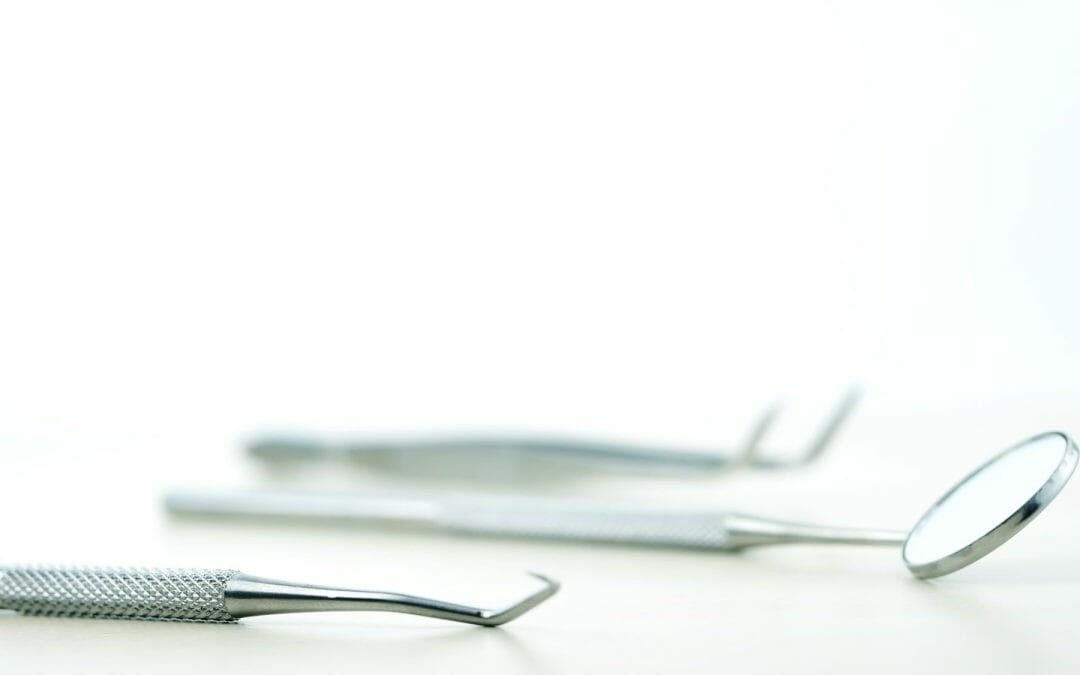Experiencing oral health symptoms can be stressful. It’s tough to examine your mouth on your own. Plus, it can be difficult to know when the symptom or problem you’re having constitutes a dental emergency and when it might be okay to wait for treatment, use at-home remedies, and visit a dentist later.
If you have oral symptoms, we recommend contacting our office and describing your symptoms or situation over the phone. If you’re not able to contact our office, it’s usually better to err on the side of caution and seek emergency medical attention.
If you experience any of the following 10 oral health concerns, you should always seek emergency dental care.
10 Common Types of Dental Emergencies
1. Your Tooth Got Knocked Out
Getting a tooth knocked out is considered a serious oral trauma and is considered a dental emergency. If your tooth is knocked loose, leave it in the socket if you can. If it’s totally knocked out, pick up the tooth by its crown (the part you chew with), being careful not to touch the roots. If the root is dirty, gently rinse it with water. If possible, you can put it back in the socket (facing the correct direction). If the socket is swollen, do not try to force the tooth back in. In this case, put the tooth in milk or hold it in your mouth between your cheek and gums to keep it moist. Take it with you to the dentist or emergency room. If you arrive soon enough, your natural tooth might be able to be saved.
2. Your Mouth or Jaw Is Injured
Any impact to the mouth or jaw that results in pain and/or swelling should be looked at by a dentist or doctor. These traumas can harm your teeth or even result in a broken jaw. Not getting prompt care could result in complications or even a serious infection.
3. You Have Severe Pain
Lots of dental issues that aren’t necessarily emergencies can cause pain. This pain is usually mild and treatable with over-the-counter anti-inflammatory medications or numbing dental gel. In these cases, you should seek dental treatment, but you don’t necessarily require emergency care.
However, if you have severe oral pain that doesn’t let up or that can’t be adequately relieved with over-the-counter medications, then you could have a serious oral health problem. You should be examined by a dentist as soon as possible.
4. You Have Symptoms of an Infection
Oral infections can be quite serious because, if they spread to nearby anatomy, these types of infections can be life-threatening. If you have a fever, any swelling in or around your mouth, spots that feel hot to the touch, signs of pus in your mouth, places that are tender to the touch, teeth that feel like they are too long, or pimple-like spots on your gums, then you could have an oral infection. If you suspect you could have an oral infection, seek emergency dental or medical care immediately.
5. You Have a Chipped or Broken Tooth
Some chips or cracks only affect the surface of a tooth. While these types of breaks can weaken the tooth, lead to sensitivity, and even create sharp edges, they do not necessarily constitute a dental emergency. Larger chips or deep fractures in a tooth can expose the interior tooth pulp. This can cause extreme tooth sensitivity and put you at risk of infection, leading to the need for a root canal and a dental crown.
Since it can be difficult for you to know how serious a crack or chip in a tooth is, you should visit a dentist as soon as possible to repair the damage. If you can’t get in right away, protect the soft tissues in your mouth by covering the sharp edges of the chip with dental wax.
6. You Lost a Dental Filling or Crown
If a dental filling or a crown either feels loose or falls off completely, you need to see a dentist right away to have the dental restoration repaired. Neglecting to fix your dental crown or filling could result in further decay or the development of an infection that might require more extensive treatment.
7. Swelling
Swelling in and around the mouth usually indicates the presence of a serious infection. This is a dental emergency that requires immediate evaluation, diagnosis, and treatment to prevent more serious and even life-threatening complications from occurring. If you experience oral swelling, keep your head elevated, apply a cold compress, and seek emergency dental care.
8. Bleeding and/or Pain Following a Tooth Extraction
After having a tooth extracted, a blood clot should form in the empty socket that’s left behind and stop the bleeding. If the blood clot gets dislodged from the socket or does not form, then bleeding will persist. Additionally, some minor pain and inflammation are normal after an extraction, but if the pain or swelling persists or becomes severe, this could be a sign of an infection.
If you experience either of these symptoms after a tooth extraction, you need to see a dentist as soon as possible.
9. Your Braces Are Broken
Orthodontic appliances, like metal braces, are built to withstand a lot of wear and tear, but they can still break. When this happens, wires can stick out and poke or cut your cheeks or tongue. It can also result in a disruption to your treatment. If your braces break, you should visit your dentist or orthodontist as soon as possible. In the meantime, do not cut the wire. Instead, cover the sharp end with orthodontic wax or gauze.
10. Dental Abscess
A dental abscess is a pocket of pus that forms as a result of a severe oral infection. Dental abscesses can sometimes form on the side of the gums or beneath a tooth. Symptoms of an abscess include swelling, having a tooth that feels too long, bite changes, fever, pus, severe pain, and/or pimple-like swollen areas in the mouth.
A dental abscess is a serious health problem that can cause severe health complications if the infection spreads. Dental abscesses should be treated as soon as possible.
Dental Emergencies and Treatment With Our Dentist in West Bend, Wisconsin
At Dentistry of West Bend, we are here to help you maintain your dental health and address any dental emergencies you happen to experience. If you have unusual oral health symptoms or experience a dental emergency like one of those listed above, seek dental treatment or medical attention as soon as possible.
To learn more about dental emergencies or to find out if your dental symptoms require immediate medical attention, we welcome you to contact Dentistry of West Bend today.


Recent Comments